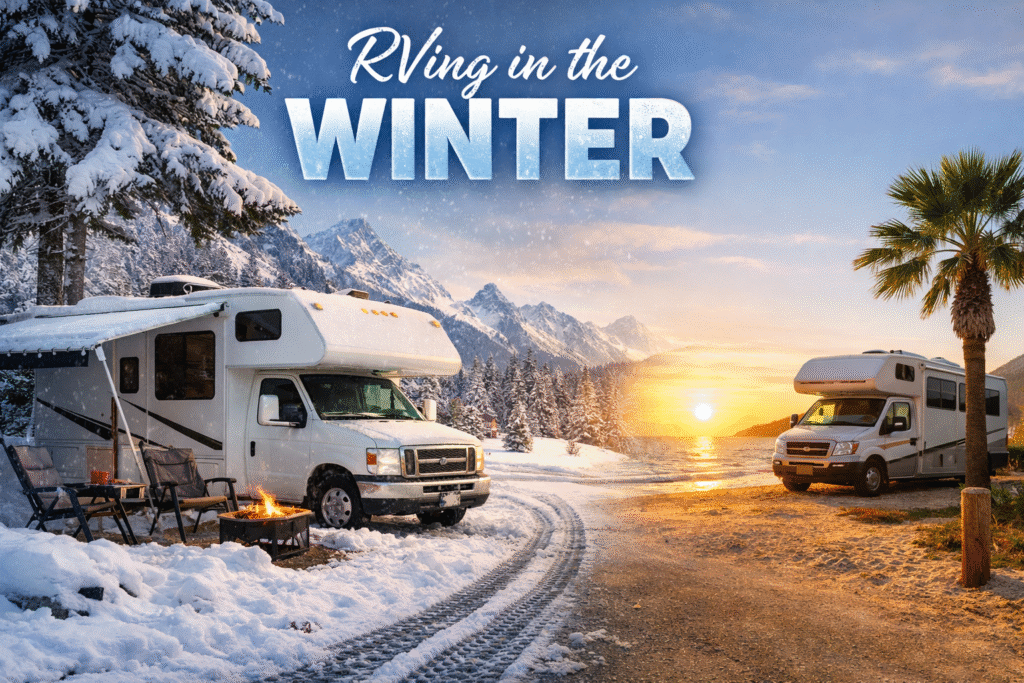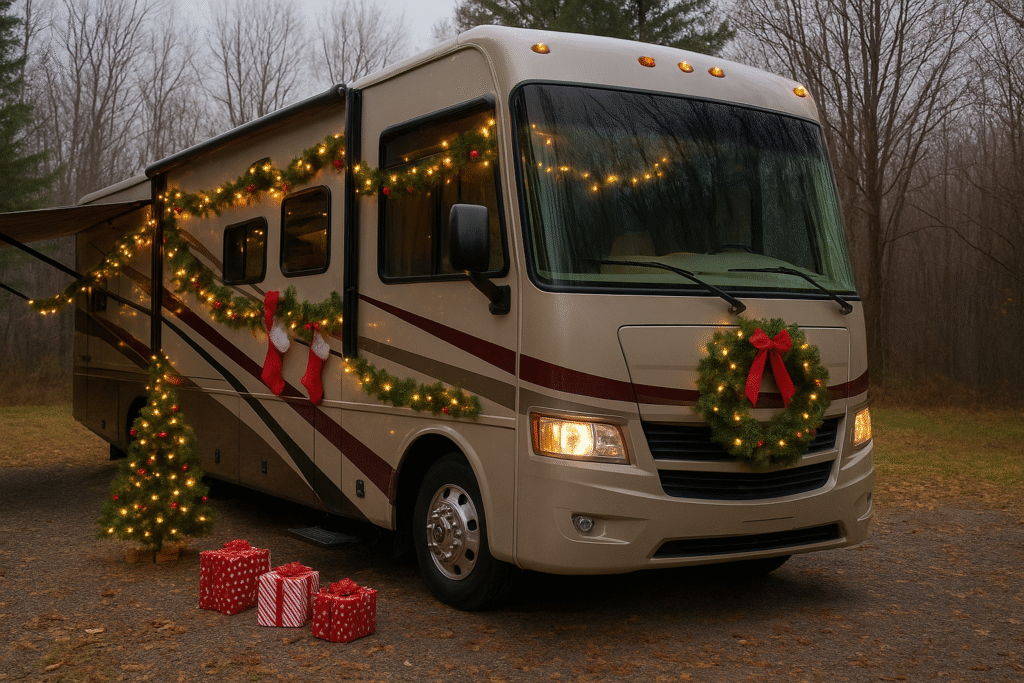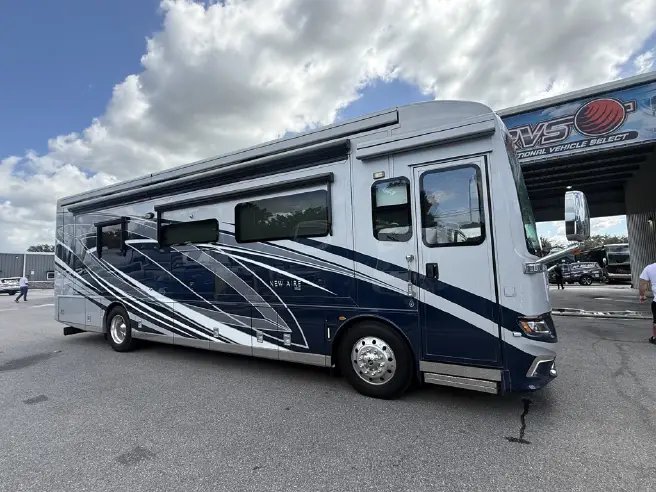Buying an RV takes a significant investment, even if you buy used. As such, you’ll want to protect your investment as much as you can by keeping up with maintenance and making sure all systems run properly. But did you know that storing your rig is another way to protect your investment? Your RV should be shielded from the sun’s damaging UV rays, as well as from bugs, bird droppings, and more when it’s not in use to help keep it looking great.
To store your RV, you’ll typically have two protection options: RV carports and garages or RV covers.
So, which one is right for you? Let’s explore some pros and cons of both!
RV Carports/Garages
An RV carport or garage is a structure with a roof and walls that can house a parked RV. Many times these structures are made of metal or wood.
Pros:
- Structures with a roof and walls offer RVs the most protection from the elements.
- You can easily access your RV when it’s stored in a carport or garage, versus when it’s under a cover.
- You can opt for a bigger storage capacity and store other RV accessories near your rig.
Cons:
- They are more expensive compared to covers, running from nearly $1000 to several thousands or even tens of thousands, depending on the type and the built-in features desired.
- Carports and garages could take up a lot of space on your property.
- You may need a permit to have a carport or garage built.
RV Covers
RV covers are made of plastic or vinyl and should cover an RV entirely.
Pros:
- Covers are an affordably priced alternative to metal RV carports or garages.
- Well-made covers should protect your rig reasonably well from the elements, pests, and bird droppings.
- There’s no need to assemble a cover like a carport or garage needs; you just unwrap it and put it on your RV.
Cons:
- Covers typically won’t hold up in inclement weather, such as strong winds or hailstorms.
- Putting a cover on and taking it off can be difficult and becomes more challenging the larger your rig is!
- Accessing your RV while in storage can be a hassle with a cover on it.
Your budget will likely play a large role in how you store your rig and frankly, either option is better than letting your RV just sit in the elements when not in use.
Which type of RV protection do you use? What made you choose that type? Let us know in the comments or contact us today!




